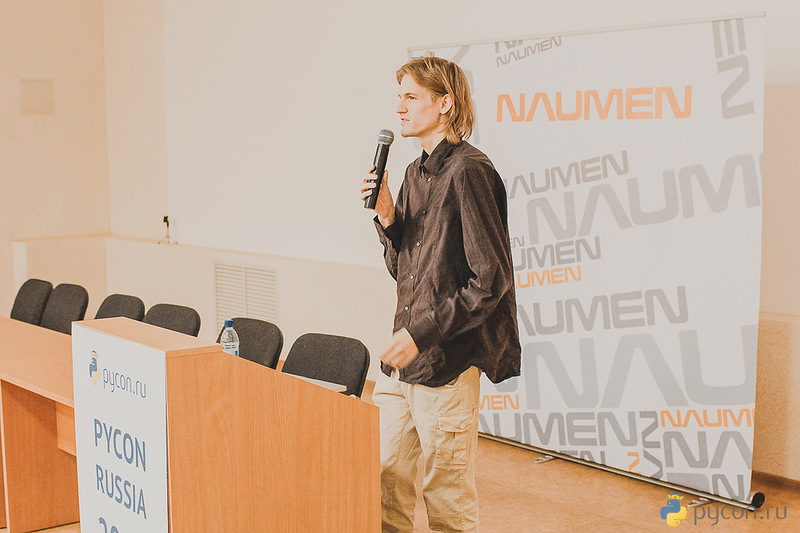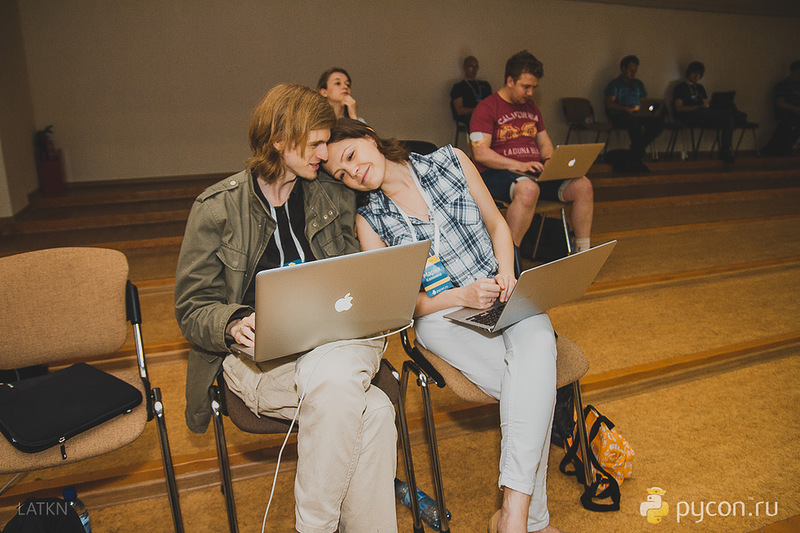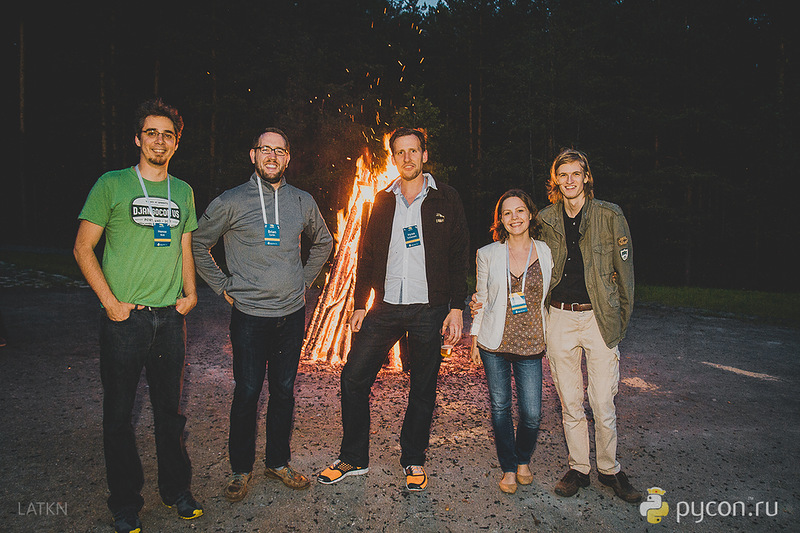Интервью с автором Flask Армином Ронахером
Продолжаем серию интервью с докладчиками PyCon Russia о Python, их работе и увлечениях. Готовы мини-интервью с разработчиком языка Python Андреем Светловым и программистом из Scrapinghub Александром Сибиряковым.
Под катом — короткое интервью c Армином Ронахером (Armin Ronacher), автором фреймворка Flask, проекта Pallets, одним из основателей Pocoo Team, автором известного шаблонизатора для языка Python Jinja2 и нескольких библиотек с открытым исходным кодом. Сейчас Армин живет в Австрии и работает партнером Sentry и консультантом для Fireteam.

Выступление Армина на PyConRu-2014
— How did you got into programming on Python?
— I picked up a German book about Python programming for children a long time ago. Did not really do anything with that knowledge initially but I helped running a German ubuntu community portal with lots of PHP code there. I learned web development through PHP then and learned a bit about why PHP might not be the best thing in the world. Picked up Python again and started writing web support libraries.
— What are you working on currently?
— Most of my time goes into Sentry these days, a bit of time into Flask and Lektor.
— What«s the best and the worst part of your job?
— Timezones:)
— What do you consider your biggest achievement in life / job at this point?
— Hard to judge. From a professional point of view the fact that so many people use my Open Source software is most likely my biggest achievement. In life I suppose it’s finding my wife and getting our son.

Армин и Мария познакомились на первом российском PyCon
— How do you think Python will develop in the next few years?
— It’s hard to tell for me. I think the general field of software engineering is changing rapidly and languages are changing in the process. I think a particular language plays less role now than it did a few years ago. Nowadays you need to juggle multiple langauges at any point in time. Given this development I’m not sure what this means for Python. I think it will grow in some areas it’s good at and will become less relevant in some others.
— What«s the biggest problem of the Python community?
— Too close minded. The python community rejected important ideas for many years because it could not picture why it’s useful. I would say packaging is one of those issues that the community did not embrace in the way it should have. Lately I think the community has a tunnelblick about how Unicode should work.
Reid Hoffman, the founder of LinkedIn: «If you are not embarrassed by the first version of your product, you«ve launched too late».
Mark Zuckerberg: «Move fast and break things. Unless you are breaking stuff, you are not moving fast enough».
— How often do you get in the situation when your aspiration for perfect code hinders fast development of a product? How did you solve this problem? Did you compromise with yourself and add dirty hacks in your apps?
— I don’t think that is an issue I have to spend a lot of time thinking about. I generally like to prototype things a lot and there I really do not care that much about having a good design. Then when it works I clean it up and figure out what I actually wanted. I doubt you can find a good design without understanding the problem and I don’t think you can understand the problem without trying to solve it.
— Which tools do you use in your everyday work?
— Vim, iTerm/Terminal.app, SSH, Bash, git, OSX is my main environment. On the server there is Linux most of the time.
— Do you read any Python blogs? Which sources about Python would you recommend?
— I don’t read any blogs intentionally. Whatever bubbles up on hackernews and reddit is what I will read.
— How do you like to spend time when not programming?
— Spending time with family, reading wikipedia and books about psychology, history and politics.

Участники PyConRu-2014 (справа налево): Armin Ronacher, Maria Ronacher, Hynek Schlawack, Brian Curtin, Honza Král
Задать свои вопросы Армину вы сможете 3–4 июля на конференции PyCon Russia, которая пройдет недалеко от Москвы. Армин сделает доклад «How Python was Shaped by leaky Internals». Кстати, Армин уже два раза выступал у нас. На PyConRu-2013 рассказывал про Advanced Flask patterns, а в 2014-м году про Writing Secure APIs (по ссылкам — видео докладов).
Еще в программе этого года: Raymond Hettinger (Python core developer с 2001 года, автор и мэйнтейнер многих частей языка, США), Martin Gorner (Google, Франция), Nathaniel Manista (Google, США), David MacIver (Hypothesis, Великобритания), Jackie Kazil (Capital One, США), Александр Сибиряков (Scrapinghub, Чехия), Андрей Светлов (DataRobot, Украина), докладчики из Positive Technologies, Rambler&Co, JetBrains, Ostrovok.ru, Яндекса, HeadHunter — и это еще не все.
Присоединяйтесь!
Спасибо нашим спонсорам: Генеральному спонсору — компании Positive Technologies, Золотому спонсору — компании JetBrains, Серебряному спонсору — компании Rambler&Co, Бронзовому спонсору — компании Ostrovok.ru.
P.S. Напишите в комментариях, с кем вам было бы еще интересно почитать интервью. Может быть, у вас есть конкретные вопросы?
